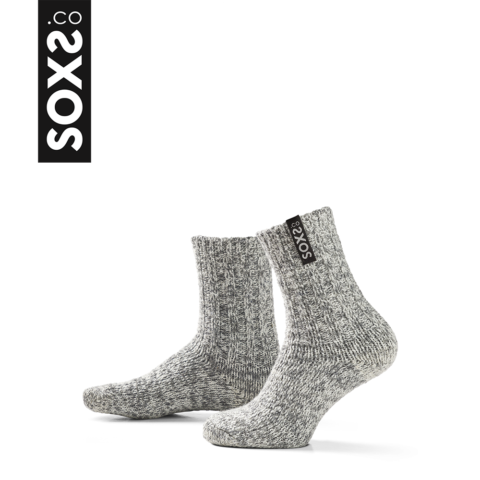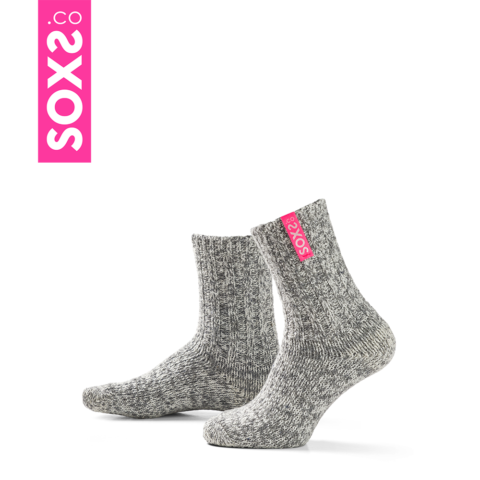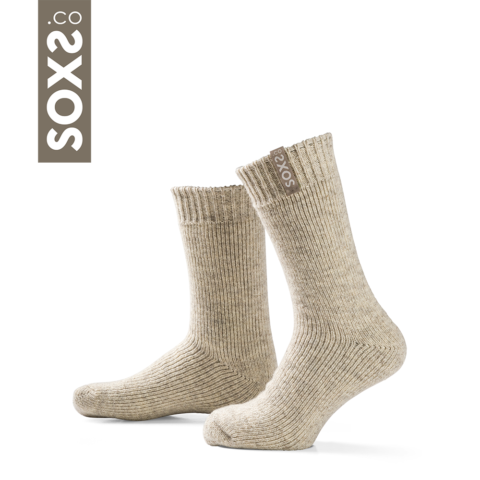Soft warm premium wool socks
Gift ready, stylishly packaged
Orders placed before 1:00 PM will be shipped today (on weekdays) PLEASE NOTE: The delivery time of Pimp My Soxs is 5 working days!
Mountain climbing requires reliable gear that performs when you need it most. Your choice of socks might seem like a small detail, but it significantly impacts your comfort and safety during climbs. Wool socks offer practical advantages that make them ideal companions for any mountain adventure.
Quality wool socks provide excellent moisture management, keeping your feet dry even during challenging climbs. This natural property helps prevent blisters and discomfort, allowing you to focus on the path ahead rather than your feet. The moisture-wicking function works alongside wool’s natural insulation to maintain a comfortable temperature in varying conditions.
Wool socks also deliver impressive durability on rugged terrain. The natural fibers withstand friction and pressure, ensuring your socks last through multiple expeditions. With wool socks, you get a balanced combination of warmth, comfort, and breathability that synthetic materials often struggle to match.
When comparing wool to synthetic materials, natural wool offers superior temperature regulation. Your feet stay warm in cold conditions without overheating during periods of exertion. This natural balance is particularly valuable in mountain environments where temperatures can change rapidly.
Synthetic socks typically don’t breathe as effectively as wool, which can lead to moisture buildup and increased blister risk. While synthetic options might cost less initially, wool socks provide better long-term value through enhanced comfort and performance. Investing in quality wool socks pays dividends throughout your climbing experiences.
Merino wool stands out as an excellent choice for climbers due to its softness and performance characteristics. These fibers naturally resist odors, making merino socks practical for multi-day expeditions with limited washing opportunities.
Our wool socks feature New Zealand sheep wool that delivers comfort without itching. This premium material provides reliable warmth and durability while feeling soft against your skin during long climbs. The natural properties of this wool make it particularly suitable for the varied demands of mountain environments.
Maintaining your wool socks properly extends their lifespan and preserves their performance benefits. Wash them by hand or on a gentle wool cycle at a maximum of 30°C with a spin limited to 600 RPM. Using a specialized wool detergent helps protect the natural fibers that give your socks their beneficial properties.
Always air dry your wool socks by laying them flat instead of using a dryer. Heat can damage the wool fibers and cause unwanted shrinkage. These simple care practices help ensure your wool socks remain reliable companions for many climbs to come.
Choosing wool socks aligns with environmental responsibility in ways synthetic alternatives cannot match. Wool is a renewable resource that, when responsibly sourced, supports sustainable agricultural practices. Unlike synthetic materials derived from petroleum products, wool production has a lower environmental impact.
Our commitment to using New Zealand sheep wool reflects our focus on both performance and sustainability. By selecting wool socks for your climbing adventures, you make a choice that benefits your comfort while supporting environmentally responsible products. Wool’s natural credentials complement its functional advantages, making it truly valuable for conscious climbers.
Wondering which wool socks would best support your next mountain expedition? Explore our collection at soxs.co to find your perfect pair.

Calf height

Calf height

Calf height